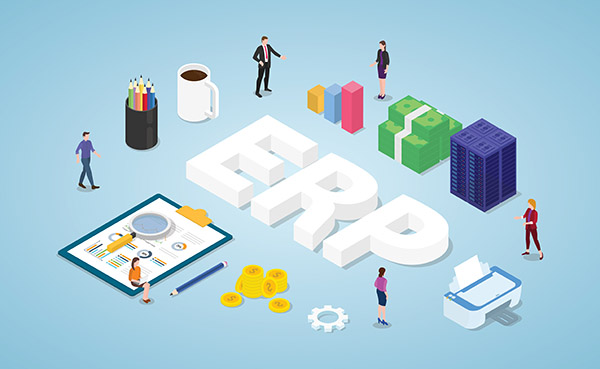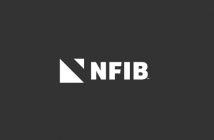Modern businesses understand that spreadsheets and manual processes no longer cut it in today’s digital world. To stay competitive and thrive in today’s business world, you must adopt the necessary tools. One essential tool for every business is ERP. In this article, you’ll learn what ERP is, how it can benefit your business, and some important tips on choosing the right one for your business.

erp enterprise resource planning concept with team people and asset company with modern isometric style – vector illustration
What Is An ERP Software?
Short for enterprise resource planning, ERP is a comprehensive business software that automates different business processes. ERP can also provide internal controls and insights from a central database that draws and collects input from various departments in your company. These departments include accounting, human resources, marketing, sales, manufacturing, and more.
In short, it connects the different computer systems into a single database. Without ERP software, each business department would have its system optimized for specific tasks. In contrast, with ERP software, every department would still have a dedicated system. However, every department can access all data and systems via a single interface.
This system allows different departments to share information and collaborate more efficiently. It also automates business processes to help improve accuracy, eliminate redundancies, and boost productivity. ERP software like Sage 100 also offers powerful analytic tools, delivering actional operation and financial reporting to guide better decision-making. Check this article to learn more about Sage 100 pricing and its features.
As you can see, there are numerous benefits to having ERP software, but that is if you choose the right one for your business needs.
How To Choose The Right Software
With hundreds of ERP software available in the market today, choosing the right one for your business can be daunting. Here are some key considerations and tips when finding an ERP software to take your business to the next level:
- Determine Your Business Needs
The ERP selection process starts with a complete evaluation and assessment of potential pain points in your business’s operations. Next, you must clearly understand what you expect from the software you’re potentially getting. Finally, consider the value it can bring to your business, the growth opportunities it would provide, and the problems and issues it would solve.
A thorough assessment needs to be done right at this stage. Make sure you prepare a list of functional requirements to choose the features you want your ERP system to have.
- Consider The Future
Another critical area in which you must assess and evaluate an ERP system includes its capability to support future business needs. Choosing an ERP provider with the same capabilities as you currently have is not enough, particularly with a growing business. To maximize the value of ERP after implementation, you need to ask the vendor about the scalability of their software.
Can the software support your business tomorrow and in the future. Is it capable of anticipating bottlenecks or shortfalls? Answering these questions can help change the perception of an ERP system from simply being a procurement tool to a strategic growth tool.
- Set A Budget
Money can be a real deal-breaker. Every business wants to minimize expenses while maximizing profits. That said, procuring, installing, and maintaining ERP software is not a cheap project. Implementing ERP software can be a substantial addition to your business’s expenses.
Thus, you must set a budget and stick with it when choosing an ERP tool. Then, do your homework by researching the different pricing of available ERP systems, including integration, implementation, and maintenance costs. Also, you need to compare the functions and features of other ERP software to determine the most cost-effective solution within your estimated budget.
- Think Of Deployment
The type of ERP deployment you choose will depend on your business needs and size. ERP cloud solutions are generally more affordable compared to an on-premise ERP system. Cloud-based ERP platforms provide optimal resource utilization, improved security, cost reduction, and better remote services. Pricing can be monthly or yearly, and you don’t have to worry about hardware-related issues.
On-premise solutions are better suited for larger organizations with the right talents. It provides complete control of the system and data operations and maintenance. In addition, on-premise ERP software offers better custom integration than cloud-based systems.
Then there’s also the third option–a hybrid ERP platform. It is a multi-sourced modular software that provides an optimized function for the modern and digitally-connected enterprise. With a hybrid deployment, the platform is hosted in the cloud and on-premise IT infrastructure, offering you the best of both worlds.
Takeaways
ERP software can make or break your organization; it is the backbone of any modern business. With the agility that modern ERP systems provide, your company can confidently compete in the increasingly competitive business landscape. Thus, it’s essential to get it right from the start. Follow the above tips to help you find the right ERP system your business deserves.




